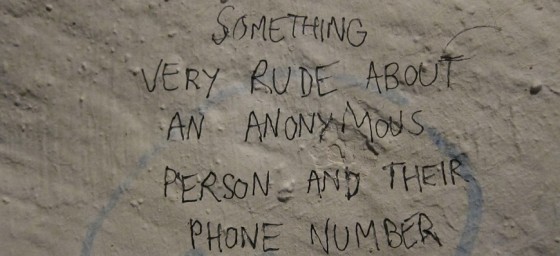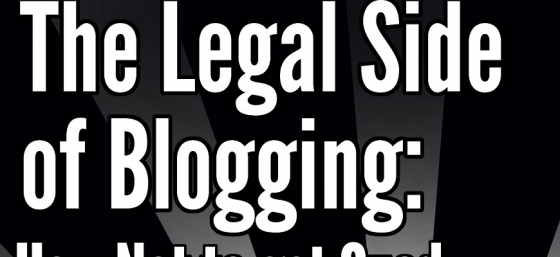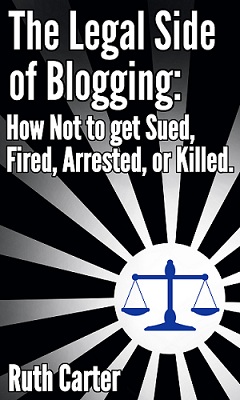
A contact at Phoenix Comicon sent me a link to an amateur video from this year’s event. Apparently it’s fueled quite a bit of discussion regarding the legalities of shooting video at pay-to-attend events.
My initial thoughts about this video: It’s creepy.
This guy knowingly and intentionally videorecorded women without their consent and posted the compilation online in a way that objectifies them. It’s all about their bodies. Did you notice he taped at least one woman while she was walking away from the bathroom? Eww! And what’s with that disturbing music with women crying on it? This guy is right up there with creepy yellow coat man from the 2010 No Pants Light Rail Ride.
What made this video so disturbing? Greg Benson of Mediocre Films does videos of women in cosplay at San Diego Comic-Con and I’ve never had an issue with it. I watched one of his videos from last year for comparison:
I don’t have an issue with this video for several reasons:
- He obviously gets consent from the women to film them. There’s no hidden agenda.
- He interacts with these women. Even when he’s enjoying the beauty around him, Greg treats these women like people, not a peep show.
- The video has a dual purpose – one of which is showcasing these stunning costumes. (Hey Greg – if you do another video like this, would you please call it “Women of Comic Con” instead of “girls?” It’s a better embodiment of these women’s badassery.)
So is Creeper Guy’s video from Phoenix Comicon illegal?
Probably not – at least based on the footage posted. It’s not illegal to be a jerk.
If he had a ticket to the event, he wasn’t trespassing. The polite thing to do at a con is to ask permission before taking photos of attendees, but it’s not required. He could have been a guy walking around looking like he was shooting general footage of the event, which lots of people do.
So far he’s not running ads on the video in question, so he’s not publicizing anyone’s image without permission. Phoenix Comicon is an event that’s open to the public to attend so there’s no expectation of privacy on the expo floor.
Is what this guy did vile? Yes.
Should he be banned from future Phoenix Comicon events? Perhaps, but that’s not my call to make. With a crowd of over 80,000 in attendance, it would be easy for someone to slip in.
However, instead of dealing with this situation from purely a legal perspective, I encourage the community to be aware of creepers at events like Phoenix Comicon. If you see someone leering at others or doing vulgar things like filming people’s asses as they walk, call them out and/or report them to event security. If you see someone being harassed, report that too and support that person. We have an obligation to keep an eye on each other.
There’s nothing wrong with enjoying the view, as long as you can do it appropriately. Remember, cosplay is not consent.
This is an issue impacting the entire geek/con community. If you believe you are the victim of a crime at a con, contact law enforcement for assistance. If you have questions about social media law or internet privacy that you want to discuss with me, you can contact me directly or connect with me on Twitter, Facebook, YouTube, or LinkedIn. You can also get access to more exclusive content that is available only to people on my mailing list, by subscribing here.









